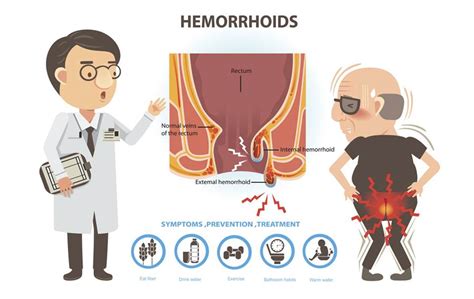How Long Does It Take Hemorrhoids To Go Away? A Comprehensive Guide
Hemorrhoids, also known as piles, are swollen veins in the anus and rectum that can cause discomfort, pain, and bleeding. Many people experience hemorrhoids at some point in their lives, and while they're often temporary, the healing time can vary greatly depending on several factors. This comprehensive guide explores how long it takes for hemorrhoids to go away and what you can do to speed up the process.
Understanding Hemorrhoid Types and Healing Times
Before we delve into healing times, it's crucial to understand the different types of hemorrhoids:
-
Internal Hemorrhoids: These develop inside the rectum and are usually painless unless they become thrombosed (a blood clot forms). Internal hemorrhoids often resolve on their own within a few days to a couple of weeks with conservative treatment.
-
External Hemorrhoids: These form under the skin around the anus and are often more noticeable and painful. They can take longer to heal, sometimes several weeks, and may require more aggressive treatment if they become thrombosed. A thrombosed external hemorrhoid, characterized by a painful, hard lump, can take several days to several weeks to heal.
-
Prolapsed Hemorrhoids: These are internal hemorrhoids that protrude from the anus. Healing time varies depending on the severity, with minor prolapses healing within a few weeks while more severe cases may require medical intervention.
Factors Affecting Hemorrhoid Healing Time
Several factors influence how quickly hemorrhoids heal:
-
Severity of the Hemorrhoids: Mild cases often resolve quicker than severe cases.
-
Individual Healing Process: Everyone heals at a different rate.
-
Treatment Methods: Using appropriate treatment methods can significantly impact healing time.
-
Underlying Medical Conditions: Certain medical conditions can affect healing.
-
Lifestyle Factors: Diet, activity level, and hygiene practices play a role.
How to Speed Up Hemorrhoid Healing
While waiting for hemorrhoids to heal naturally, several strategies can help accelerate the process:
Lifestyle Changes:
-
High-Fiber Diet: Increase your intake of fruits, vegetables, and whole grains to soften stools and reduce straining. This is crucial for preventing future occurrences.
-
Increased Fluid Intake: Drink plenty of water to further soften stools.
-
Regular Exercise: Gentle exercise can improve bowel regularity.
-
Avoid Straining: Avoid straining during bowel movements.
-
Warm Baths or Sitz Baths: Soaking in warm water can soothe irritated tissue.
-
Over-the-Counter Treatments: Creams, ointments, and suppositories containing hydrocortisone or other soothing agents can provide temporary relief and aid in healing.
Medical Interventions:
In some cases, medical intervention may be necessary:
-
Rubber Band Ligation: This procedure cuts off the blood supply to the hemorrhoid, causing it to shrink and fall off.
-
Sclerotherapy: This involves injecting a solution into the hemorrhoid to shrink it.
-
Hemorrhoidectomy: This surgical procedure removes the hemorrhoids. This is usually reserved for severe cases.
When to See a Doctor
While many hemorrhoids resolve on their own, it's essential to see a doctor if:
- You experience severe pain.
- Bleeding is excessive or persistent.
- You have symptoms that last for more than a couple of weeks.
- You notice a significant change in bowel habits.
- You suspect a more serious condition.
Conclusion: Patience and Proactive Care
The healing time for hemorrhoids varies significantly, but with proper care and lifestyle adjustments, you can typically expect improvement within a few weeks for mild cases. Severe cases may require medical intervention. Remember, prevention is key; maintain a healthy lifestyle to reduce your risk of developing hemorrhoids in the future. Consulting a doctor is always recommended for persistent or severe symptoms.
